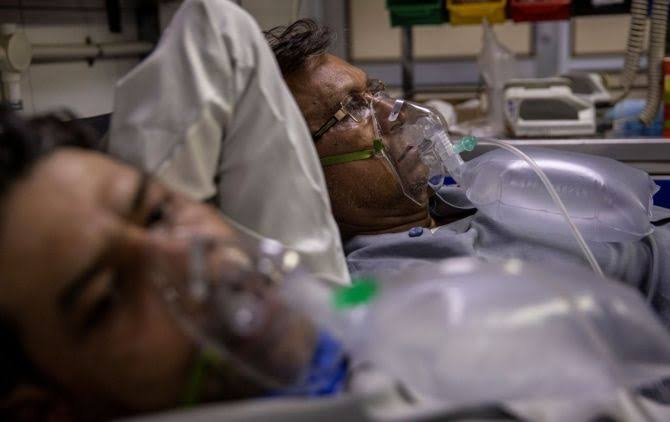
Unscheduled power outages in Kashmir pose a serious threat to the well-being of patients relying on oxygen support at home.
In Srinagar City, unreliable power supply has left patients in perilous situations, while those living in rural areas face many more challenges.
Patients across various areas of Srinagar spoke with the news agency—Kashmir News Observer (KNO) and expressed anguish, saying that the frequent and unscheduled power disruptions have transformed their lifeline—oxygen supply—into a source of anxiety and suffering.
Shakeel Ahmad, the son of a patient from the Barzulla area in Srinagar, said continuous power is crucial for oxygen concentrators which are vital for supporting those with respiratory conditions.
Despite the city setting, Ahmad said he faces hurdles in ensuring a constant oxygen supply for his father. “I have to travel to Batamaloo every alternate day to fill an oxygen cylinder, which costs around Rs 500 including fare,” he said.
Another patient from Wantpora, Srinagar, echoed similar concerns, saying there is an imperative need for a 24×7 oxygen supply, which becomes unattainable due to power outages.
Highlighting the severity of the situation, the patient said any disruption exceeding half an hour can lead to deterioration in their health.
Patients and their families in other areas of Srinagar said they are grappling with the challenge of managing power backup solutions and ensuring the safety of their loved ones. While some have resorted to alternative power sources, these solutions come with their own set of challenges, and not everyone can afford generators or backups, they said.
Expressing the financial constraints faced by many, they revealed that patients from financially weaker sections rely on concentrators provided by NGOs, but managing daily refills for oxygen cylinders remains a daunting task.
If such is the condition of patients in Srinagar City, then one can understand what will be the condition of patients in rural areas who have to come to Srinagar or visit hospitals here to fill cylinders on a daily basis, they said.
The patients and their families urged the government to address the matter and ensure, at the very least, a scheduled power supply—(KNO)




